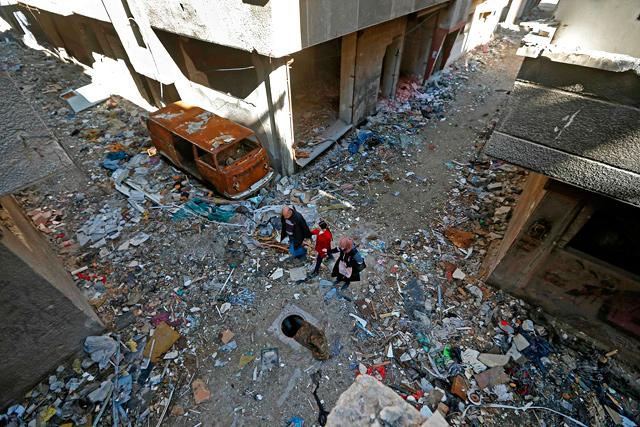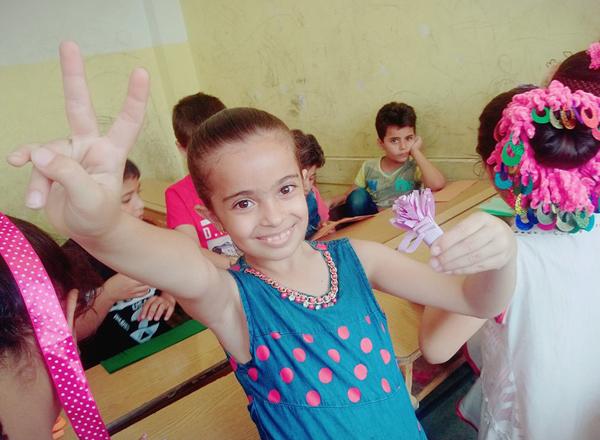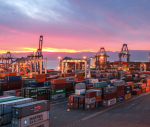You are here
Palestinians in Syria’s Yarmuk yearn for outside help
By AFP - Nov 05,2018 - Last updated at Nov 05,2018
YARMUK, Syria — After years of fighting, crippling siege and bombardment, what was once the Palestinian diaspora’s largest urban settlement in southern Damascus has been reduced to a sea of debris.
Former residents of the Palestinian camp of Yarmuk are desperately counting on assistance from abroad to help raise the once-bustling neighbourhood back out of the rubble.
“We’ve lived through a terrifying nightmare,” said 46-year-old Amina, one of the camp’s very few remaining residents.
It “didn’t kill us, but now we need someone to rebuild the houses so our people and neighbours can return”, she said, wearing a long black robe and white headscarf.
In May this year, Syrian government and allied forces retook the neighbourhood, which had for years been the Daesh extremist group’s only bastion in the capital.
Five months on, it is a ghost town where bulldozers have carved wide passages through a sprawling jumble of concrete debris and mangled steel rods.
Foreign “countries need to help us because we’re like a cripple who needs a crutch to walk again”, Amina said.
Founded in 1957 with tents for Palestinians forced to leave their homes by the establishment of Israel, Yarmuk grew into a sprawling neighbourhood of permanent structures that became home to 160,000 Palestinians, as well as Syrians.
In 2012, around 140,000 residents fled clashes, leaving the rest to face severe food shortages under government siege.
And three years later, Daesh extremists entered the area, bringing further suffering to remaining residents.
Despite all this, dozens of families including Amina’s remained inside the camp, and others have since trickled back in.
A few children snake between the charred carcasses of buses and cars lining a street on their way to a school outside the camp.
In Amina’s street, one of the only roads in Yarmuk still inhabited, a recently returned neighbour has cobbled together a playground.
Abu Bilal has brought together swings, a small merry-go-round and a slide in an alley adorned with portraits of President Bashar Assad and late Palestinian leader Yasser Arafat.
“I created this space so the neighbourhood’s children could be happy,” said the 54-year-old, who now works sweeping streets recently cleared of rubble.
“What I do is not enough for people to come back, but I hope donor countries” will help, he said.
In September, bulldozers started to clear Yarmuk’s main roads of rubble, with funding from the Palestine Liberation Organisation, and are expected to take another two months to finish clearing side streets.
“Rebuilding requires [foreign] countries and huge capital,” said Palestinian engineer Mahmud Khaled, a member of a committee overseeing the rubble clearing.
But Palestinian and UN officials say the camp’s future is still unclear, as Damascus has not yet given a green light for any rebuilding or officially allowed residents to return.
The UN agency for Palestinian refugees, UNRWA, says its 23 premises in the camp including 16 schools are damaged, but it will not fix any if the government does not officially allow residents to return.
“What is the future of the camp? Will the government allow people to go back or not?” UNRWA’s head in Syria, Mohammed Abdi Adar, said.
“Before we can do anything, we must get a clear answer,” he told AFP.
Even then finding funding would be tough, said the official, whose agency has been facing a funding crisis since the United States cut vital support.
“Many donors are saying they will not support the reconstruction in Syria,” Abdi Adar said, though he stressed the aim for UNRWA was simply to re-establish services.
Syria’s war has killed more than 360,000 people, displaced millions and ravaged large parts of the country since it started in 2011.
Regime ally Moscow has called for assistance in rebuilding Syria so millions of refugees can return.
In July, the government tasked the ministry of works to draw up new plans for Yarmuk, as well as other Damascus suburbs retaken from rebels and extremists, sparking fears that the camp could fall under a controversial new law for redevelopment.
Under this law, if their land is part of a new development, owners inevitably lose their property but can apply for compensation if they can prove ownership.
Individual Palestinians and Syrians own property in 80 per cent of the Yarmuk camp, while the remainder is owned by the Syrian state and managed by its authority for Palestinian affairs.
For now, Palestinian officials say the government has assured them that Yarmuk is under no threat. They are pushing for a 2004 plan to be followed for reconstruction.
Related Articles
YARMUK, Syria — When Syrian authorities said they would allow returns to the war-ravaged Yarmuk camp for Palestinian refugees in southern Da
DAMASCUS — More than 20 per cent of Syria's Palestinian refugees have fled the country and its five-year war, the head of the UN Palestinian
AMMAN — Schools run by the United Nations Relief and Works Agency for Palestine Refugees (UNRWA) will open on time for the upcoming academic


















